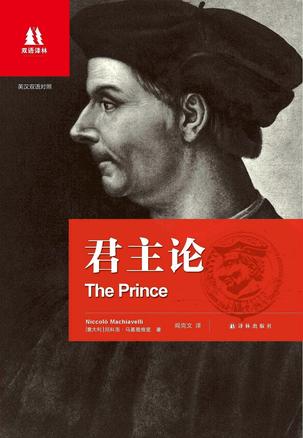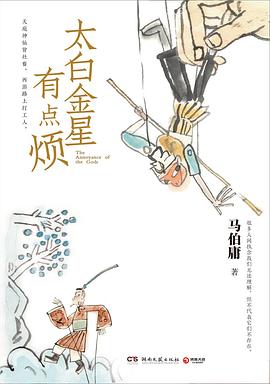君主论

作者简介:
尼科洛•马基雅维里(1469-1527) 生于佛罗伦萨一个没落的贵族之家。受益于父亲的丰富藏书,从小就接触到许多古典文献。二十九岁时出任佛罗伦萨共和国执政委员会秘书,负责外交与国防事务。佛罗伦萨共和国覆灭之后,被迫隐居,于清贫之中著书立说。后几番求仕而不得,抑郁而终。
内容简介:
《君主论》作者身处意大利陷入分裂、诸公国相互征战的时代,对国家统一有强烈向往。书中,作者剥离道德,用工具理性来解剖政治;强调实力,重视军队的作用,所提出的为君之道和治国原则惊世骇俗。墨索里尼誉之为“政治家的袖珍指南”,罗素则斥之为“恶棍的手册”。 《君主论》不过是一本小册子,大体上可以说,它的风格是少有的流畅、简洁而辛辣,属于文艺复兴文体的典范。 ——以赛亚•伯林 《反潮流》 马基雅维里自称是在给君主讲课,其实他是在给人民讲大课。他的《君主论》乃是共和党人的教科书。 ——卢梭 《社会契约论》 《君主论》是一部科学著述,是因为它传播了一个普遍学说,这个普遍学说以源于经验的理念思维为基础,并对这种理念思维作出阐述。 ——利奥•斯特劳斯 《关于马基雅维里的思考》
目录:
尼科洛·马基雅维里致伟大的洛伦佐·德·梅第奇 一 君主国的不同类型及其获取方式 二 世袭君主国 三 混合型君主国 四 亚历山大大帝死后,他所征服的大流士王国为什么没有反叛其继承人 五 如何管理在被征服前生活在各自法律之下的城市或君主国 六 以自己的军力和能力获取的新君主国 七 靠运气和外国军队获取的新君主国 八 以邪恶之道获取君权的人 九 ”公民君主国“ 十 如何评价君主国的实力 十一 教皇国 十二 军队的不同种类及雇佣军 十三 外国援军、混合型军队及本国军队 十四 君主的军务责任 十五 人们——特别是君主——何以受人毁誉 十六 慷慨与吝啬 十七 残酷与仁慈:受人爱戴好于被人畏惧,还是相反 十八 君主应如何守信 十九 君主应力避受到轻蔑与憎恨 二十 堡垒以及君主采取的种种日常对策之利弊 二十一 君主应如何作为以赢得崇敬 二十二 君主的近臣 二十三 君主应摈弃谄媚之徒 二十四 意大利的君主们何以丧国 二十五 人事中的命数以及如何对抗命运 二十六 谏议将意大利从蛮族人手中解救出来 Dedication: To the Magnificent Lorenzo Di Piero De’ Medici 1. Of the Various Kinds of Princedom, and of the Ways in Which They Are Acquired 2. Of Hereditary Princedoms 3. Of Mixed Princedoms 4. Why the Kingdom of Darius, Conquered by Alexander, Did Not, on Alexander’s Death, Rebel Against His Successors 5. How Cities or Provinces Which Before Their Acquisition Have Lived Under Their Own Laws Are To Be Governed 6. Of New Princedoms Which a Prince Acquires With His Own Arms and by Merit 7. Of New Princedoms Acquired By the Aid of Others and By Good Fortune 8. Of Those Who By Their Crimes Come to Be Princes 9. Of the Civil Princedom 10. How the Strength of All Princedoms Should Be Measured 11. Of Ecclesiastical Princedoms 12. How Many Different Kinds of Soldiers There Are, and of Mercenaries 13. Of Auxiliary, Mixed, and National Arms 14. Of the Duty of a Prince In Respect of Military Affairs 15. Of the Qualities In Respect of Which Men, and Most of all Princes, Are Praised or Blamed 16. Of Liberality and Miserliness 17. Of Cruelty and Clemency, and Whether It Is Better To Be Loved or Feared 18. How Princes Should Keep Faith 19. That a Prince Should Seek to Escape Contempt and Hatred 20. Whether Fortresses, and Certain Other Expedients to Which Princes Often Have Recourse, are Profitable or Hurtful 21. How a Prince Should Bear Himself So As to Acquire Reputation 22. Of the Secretaries of Princes 23. That Flatterers Should Be Shunned 24. Why the Princes of Italy Have Lost Their States 25. What Fortune Can Effect in Human Affairs, and How She May Be Withstood 26. An Exhortation to Liberate Italy from the Barbarians




评论